
Enchanting Füssen: The Jewel of Bavaria
Nestled in the foothills of the Bavarian Alps, Füssen is a picturesque town that seamlessly blends natural beauty with rich history. Known for its charming old town, Füssen offers cobblestone streets lined with colorful houses, cozy cafes, and traditional Bavarian restaurants. The town's historic center is dominated by the High Castle (Hohes Schloss), an impressive structure that dates back to the 14th century and features stunning frescoes and an art gallery. Füssen is also the gateway to the world-famous Neuschwanstein Castle, often referred to as the 'fairy tale castle'. This iconic landmark, built by King Ludwig II, is perched on a rugged hill and offers breathtaking views of the surrounding countryside. A visit to Neuschwanstein is a must, and the nearby Hohenschwangau Castle, the childhood home of King Ludwig II, adds to the historical allure. Beyond its architectural wonders, Füssen is a paradise for outdoor enthusiasts. The town is surrounded by beautiful lakes, such as Forggensee, and offers numerous hiking and cycling trails. During winter, the nearby ski resorts provide excellent opportunities for skiing and snowboarding. Whether you're looking to explore historical sites, enjoy outdoor activities, or simply relax and take in the stunning scenery, Füssen has something for everyone.
Local tips in Fussen
- Visit Neuschwanstein Castle early in the morning to avoid the crowds.
- Rent a bike to explore the scenic trails around Füssen and its lakes.
- Try the local Bavarian cuisine at one of the traditional restaurants in the old town.
- Check the weather forecast and pack accordingly, as the mountain climate can be unpredictable.
- Don't miss a visit to the High Castle (Hohes Schloss) for a dose of local history and art.
Enchanting Füssen: The Jewel of Bavaria
Nestled in the foothills of the Bavarian Alps, Füssen is a picturesque town that seamlessly blends natural beauty with rich history. Known for its charming old town, Füssen offers cobblestone streets lined with colorful houses, cozy cafes, and traditional Bavarian restaurants. The town's historic center is dominated by the High Castle (Hohes Schloss), an impressive structure that dates back to the 14th century and features stunning frescoes and an art gallery. Füssen is also the gateway to the world-famous Neuschwanstein Castle, often referred to as the 'fairy tale castle'. This iconic landmark, built by King Ludwig II, is perched on a rugged hill and offers breathtaking views of the surrounding countryside. A visit to Neuschwanstein is a must, and the nearby Hohenschwangau Castle, the childhood home of King Ludwig II, adds to the historical allure. Beyond its architectural wonders, Füssen is a paradise for outdoor enthusiasts. The town is surrounded by beautiful lakes, such as Forggensee, and offers numerous hiking and cycling trails. During winter, the nearby ski resorts provide excellent opportunities for skiing and snowboarding. Whether you're looking to explore historical sites, enjoy outdoor activities, or simply relax and take in the stunning scenery, Füssen has something for everyone.
When is the best time to go to Fussen?
Iconic landmarks you can’t miss
Hohes Castle
Discover Füssen's Hohes Schloss, a majestic castle showcasing late Gothic architecture, illusion paintings, and Bavarian art collections, offering panoramic views and a journey through history.
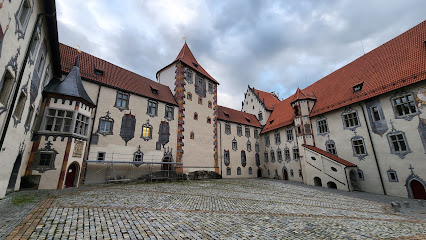
Maxsteg
Experience the breathtaking beauty of Lechfall from the historic Maxsteg bridge in Füssen, offering panoramic views of the turquoise Lech River and surrounding Alpine landscapes.
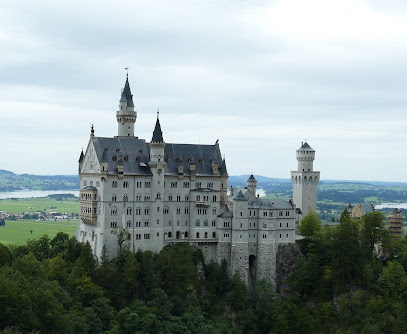
Stadtbrunnen
Discover the historic Stadtbrunnen in Füssen's charming Old Town, a central landmark featuring a statue of St. Magnus, surrounded by shops and cafes, embodying Bavarian culture.
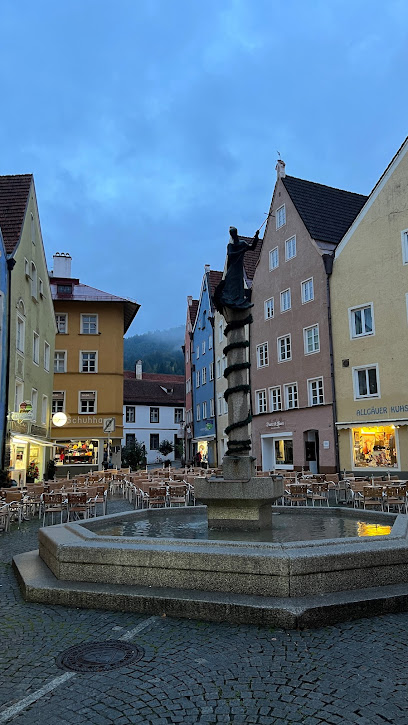
Monument
Explore St. Mang's Abbey in Füssen: A stunning Baroque monastery with a rich history, housing a fascinating museum showcasing the region's cultural heritage and musical traditions.
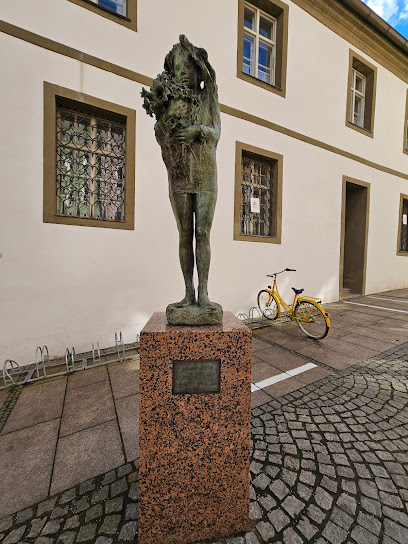
Unmissable attractions to see
Neuschwanstein Castle
Discover the fairy-tale charm of Neuschwanstein Castle in Bavaria, a historical landmark that inspires awe with its breathtaking beauty and rich heritage.
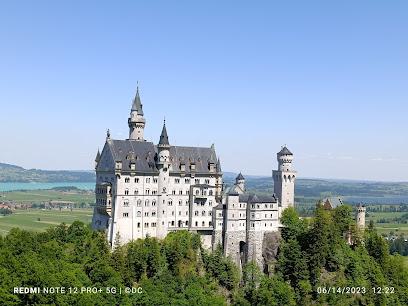
Festspielhaus Neuschwanstein
Discover the Festspielhaus Neuschwanstein in Füssen: A premier performing arts theater surrounded by breathtaking Bavarian landscapes.
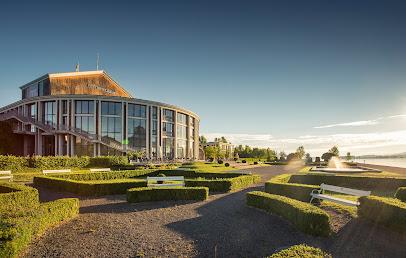
Museum of the Bavarian Kings
Uncover the fascinating legacy of Bavaria's royal history at the Museum of the Bavarian Kings in Hohenschwangau, a must-see for all visitors.
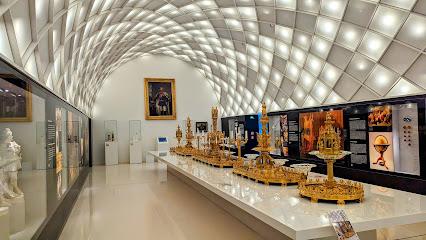
Auwaldpfad
Discover the serene beauty of Auwaldpfad, a tranquil hiking area in Füssen, perfect for nature lovers and families seeking outdoor adventures.
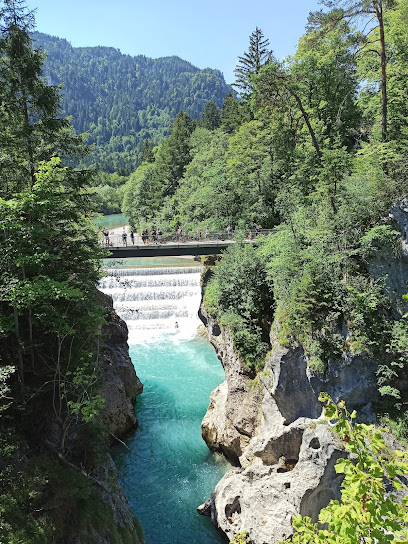
Benedictine monastery of St. Mang
Discover the rich history and breathtaking architecture of the Benedictine Monastery of St. Mang in Füssen, a tranquil heritage site in Bavaria.
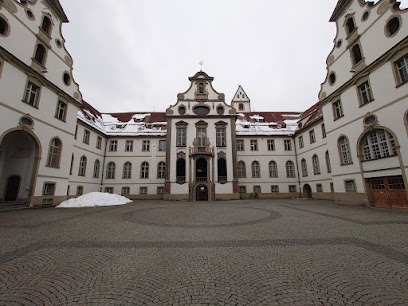
Hopfen Am See castle ruins
Explore the historic Hopfen Am See castle ruins, a stunning blend of medieval architecture and breathtaking Bavarian landscapes.
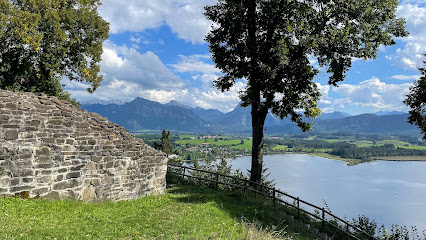
Münter - House
Explore the artistic legacy of Gabriele Münter at Münter-Haus, a serene museum in Murnau am Staffelsee celebrating German expressionism.
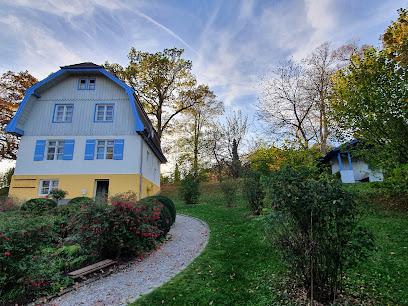
Alpseebad Hohenschwangau
Experience the tranquility of Alpseebad Hohenschwangau, a stunning swimming lake nestled in Bavaria's breathtaking alpine landscape.
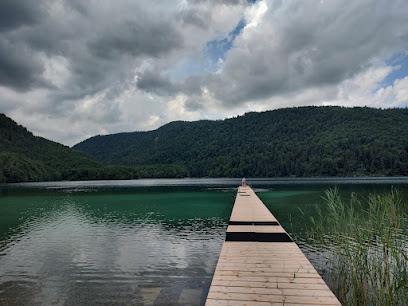
Pöllat Gorge Schwangau
Explore the stunning Pöllat Gorge in Schwangau, Germany—an adventure paradise with breathtaking views and unforgettable hiking experiences.
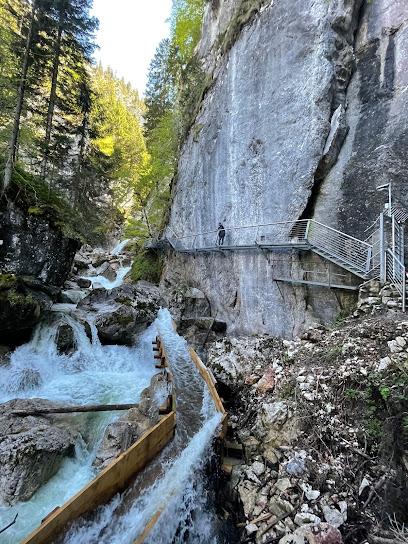
Pindarplatz
Discover the breathtaking views and serene hiking trails at Pindarplatz, Schwangau's hidden gem for nature lovers and adventurers.
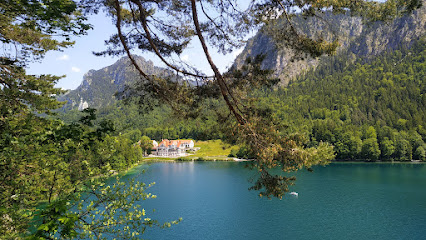
Museum of Fuessen
Explore the rich history and vibrant culture of Füssen at the Museum of Füssen, showcasing art, craftsmanship, and local traditions.
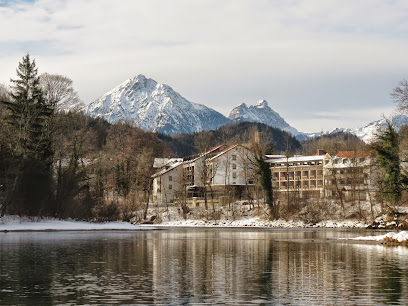
Franciscan Monastery of St Stephen
Explore the Franciscan Monastery of St Stephen in Füssen, a serene blend of history, art, and spirituality nestled in Bavaria's stunning landscape.
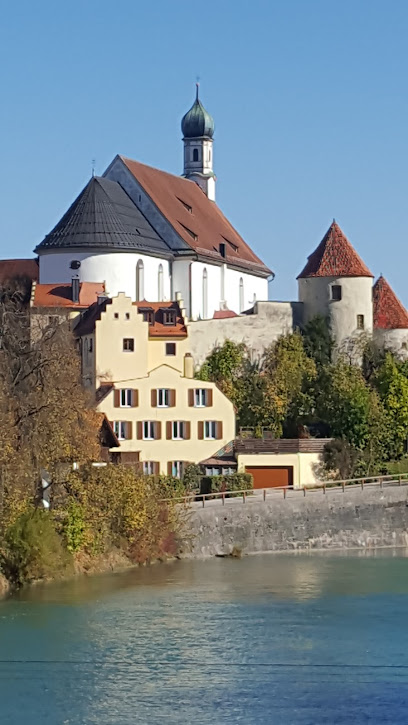
Der Baumkronenweg
Explore Der Baumkronenweg in Füssen, a breathtaking tree-top walkway offering stunning views and educational insights into the Bavarian forest ecosystem.
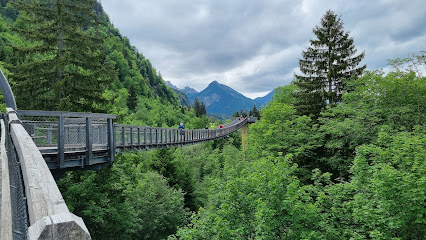
Heilig-Geist-Spitalkirche
Discover the tranquility of Heilig-Geist-Spitalkirche in Füssen, a beautiful Catholic church steeped in history and architectural beauty.
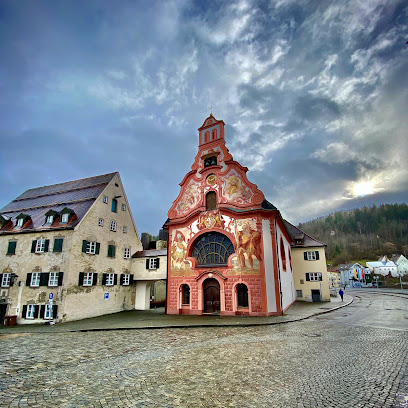
Ruhebänke
Experience the tranquil beauty of Ruhebänke in Schwangau, a serene lakeside retreat perfect for relaxation and picturesque moments.
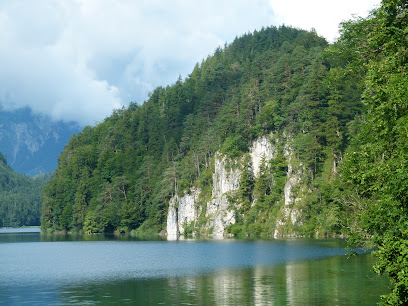
Essential places to dine
Beim Olivenbauer - Füssen
Discover the exquisite Mediterranean flavors at Beim Olivenbauer - a must-visit restaurant in Füssen for food enthusiasts.
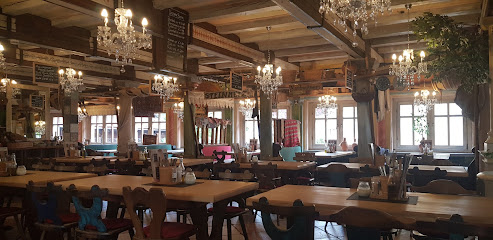
La Perla Ristorante Pizzeria Füssen
Discover authentic Italian cuisine at La Perla Ristorante Pizzeria Füssen, offering delicious pizzas and seafood dishes in a family-friendly atmosphere.
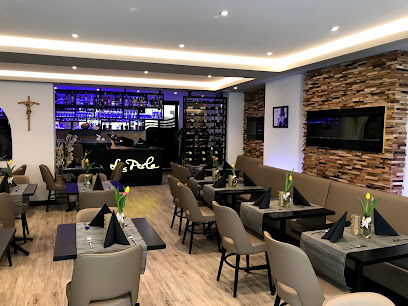
Il Pescatore
Experience authentic Italian cuisine at Il Pescatore in Füssen - where every dish tells a story and every meal is memorable.
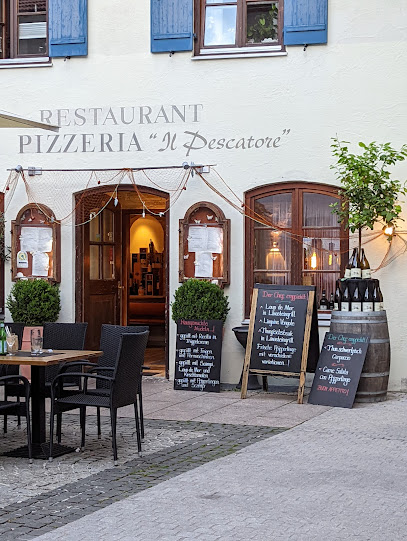
KYŌDAI
Savor authentic Pan Asian cuisine at KYŌDAI in Füssen—where every dish tells a story of flavor and tradition.
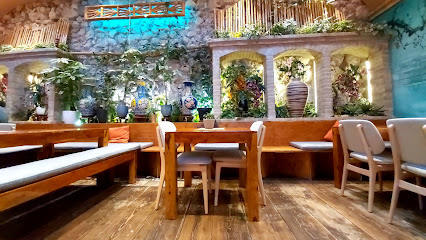
Gasthof Krone
Discover Gasthof Krone: A Bavarian gem offering authentic cuisine and cozy accommodations in the heart of Füssen's enchanting medieval charm.
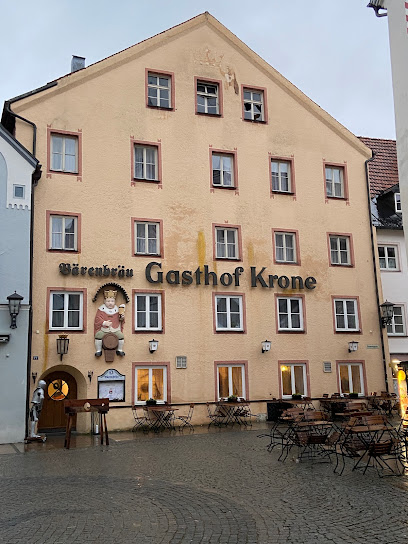
Ristorante Pizzeria Michelangelo
Experience authentic Italian flavors at Ristorante Pizzeria Michelangelo in Füssen - where every bite feels like a trip to Italy.
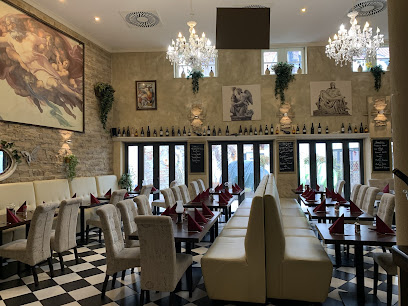
Steakhaus Füssen & Tapas Bar
Experience the best of steak and tapas at Steakhaus Füssen & Tapas Bar – where culinary delights meet warm hospitality in beautiful Füssen.
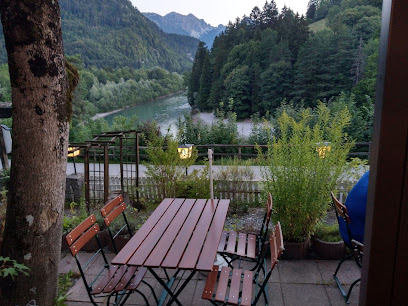
Gasthof Weizenbrauerei Woaze
Savor authentic Bavarian cuisine and local brews at Gasthof Weizenbrauerei Woaze in Füssen - where tradition meets flavor.
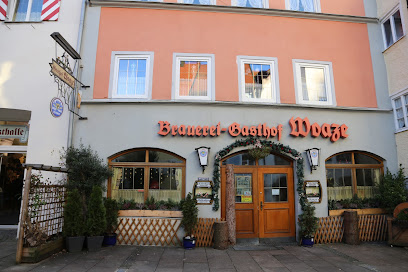
Annapurna Indisches Restaurant
Experience authentic Indian cuisine at Annapurna Indisches Restaurant in Füssen – where flavor meets tradition in every dish.
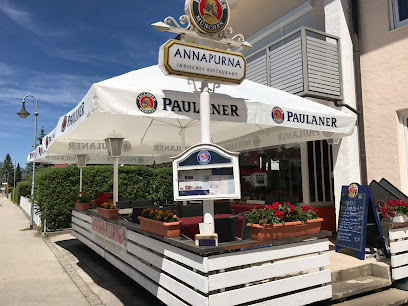
Zum Franziskaner
Experience authentic Bavarian cuisine at Zum Franziskaner in Füssen—where tradition meets taste in every delightful dish.
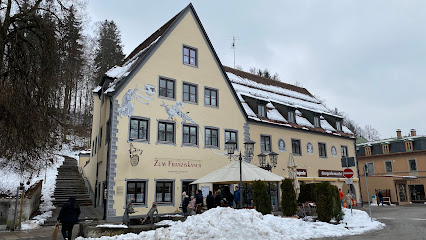
Madame Plüsch
Discover authentic Bavarian flavors at Madame Plüsch in Füssen - where culinary tradition meets warm hospitality.
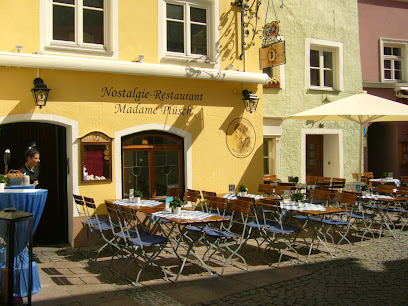
Restaurant Ritterstuben
Experience authentic Bavarian cuisine at Restaurant Ritterstuben in Füssen – where every meal is a celebration of local flavors.
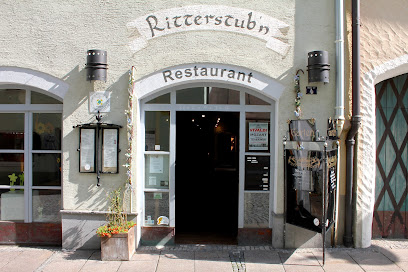
Gasthaus Zum Schwanen
Experience authentic Bavarian cuisine at Gasthaus Zum Schwanen in Füssen - where tradition meets taste.
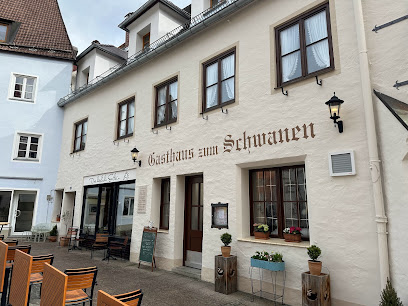
Restaurant Ludwigs
Experience authentic German flavors at Restaurant Ludwigs in Füssen – where tradition meets taste amidst stunning surroundings.
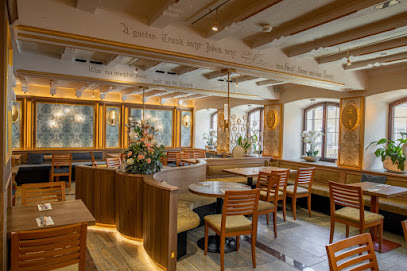
RIWA Bar & Restaurant
Experience exceptional German cuisine at RIWA Bar & Restaurant in Füssen – where tradition meets contemporary dining.
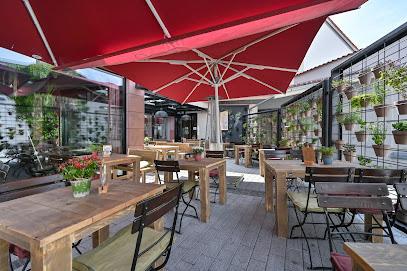
Markets, malls and hidden boutiques
FOC Füssen Outlet Center
Explore the FOC Füssen Outlet Center for unbeatable deals on clothing and sporting goods in the picturesque town of Füssen, Germany.
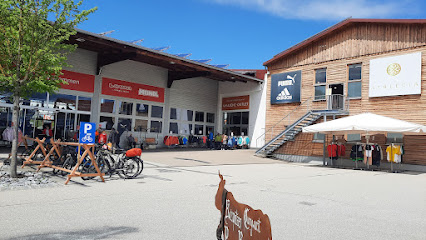
Theresienhof
Explore the vibrant Theresienhof shopping mall in Füssen, where local charm meets international brands for an unforgettable retail experience.
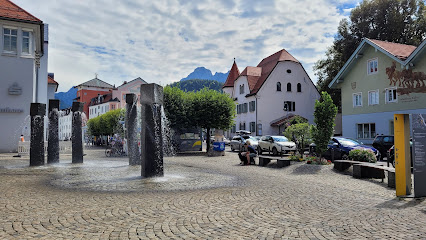
Woolworth
Discover quality and variety at Woolworth, Füssen's premier department store for all your shopping needs, from essentials to unique finds.
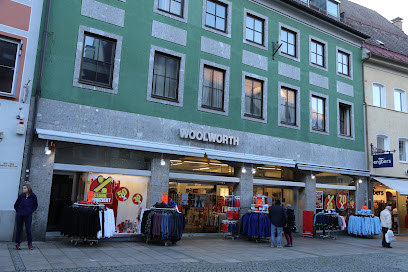
1803 - Store Füssen
Discover unique clothing and local fashion trends at 1803 - Store Füssen, a stylish destination in the heart of Füssen, Germany.
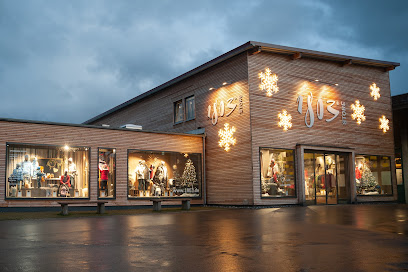
Gwandhaus/ Der Hutladen Füssen
Explore Gwandhaus in Füssen for a delightful selection of stylish hats and clothing that captures the essence of local fashion.
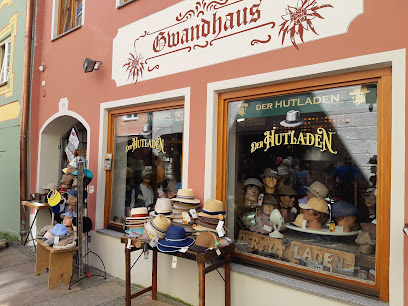
Marys Boutique
Discover the charm of Marys Boutique in Füssen, a fashion paradise for women seeking unique styles and personalized shopping experiences.
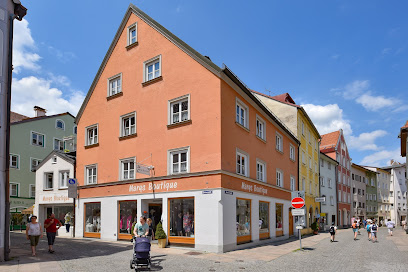
GALERIA BAVARIA
Explore GALERIA BAVARIA in Füssen for unique Bavarian gifts and souvenirs that capture the essence of your travels.
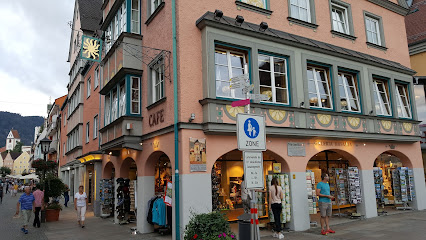
Engel Moden Füssen
Discover the latest trends in fashion at Engel Moden Füssen, where stylish choices for men and women await in a charming Bavarian setting.
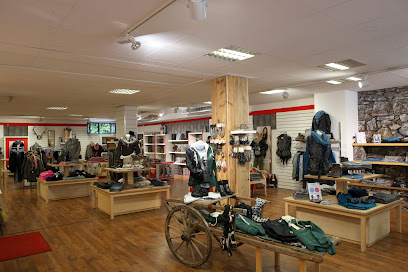
Mode Mundi
Discover unique fashion and local styles at Mode Mundi, the premier clothing boutique in Füssen, Germany.
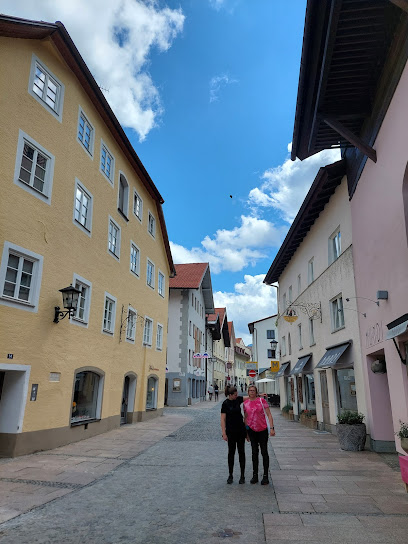
Crafts - 100% Handwerk Füssen
Discover unique handcrafted treasures at Crafts - 100% Handwerk Füssen, where local artisans bring their creativity to life in stunning pieces.
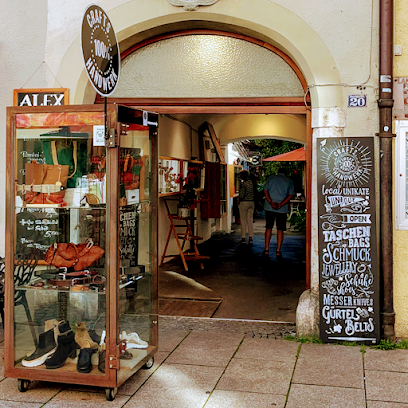
Mensels - Geschenke & Souvenirs
Explore Mensels in Füssen for unique souvenirs and gifts that capture the charm of Bavaria, perfect for remembering your travels.
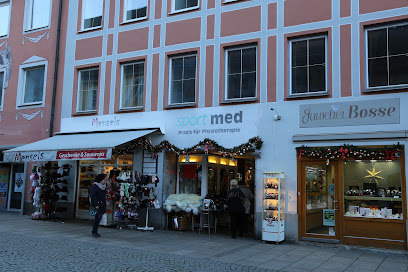
Modeja-Store
Explore the Modeja-Store in Füssen for trendy clothing and unique styles that capture the essence of German fashion.
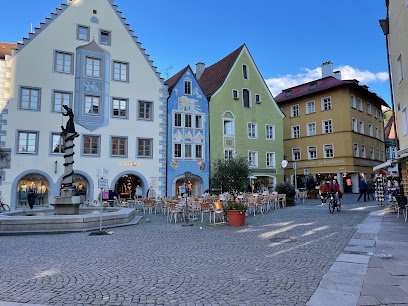
s.Oliver Store by Modeja
Discover stylish fashion at s.Oliver Store in Füssen, featuring trendy clothing for the whole family in a vibrant shopping environment.
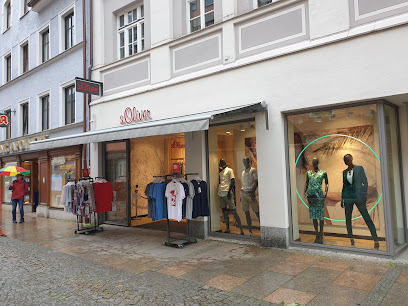
Weltpresse Füssen
Discover a treasure trove of literature and local charm at Weltpresse Füssen, the premier book store for every book lover visiting this picturesque Bavarian town.
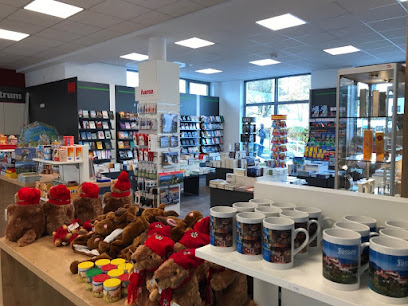
Ubuy Galerie 游拜
Explore the vibrant Ubuy Galerie in Füssen, where shopping meets local culture and delightful dining experiences await.
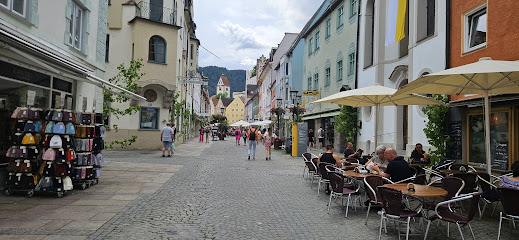
Essential bars & hidden hideouts
Steakhaus Füssen & Tapas Bar
Experience the best of Bavarian cuisine at Steakhaus Füssen & Tapas Bar, where exquisite steaks meet vibrant tapas in a charming setting.
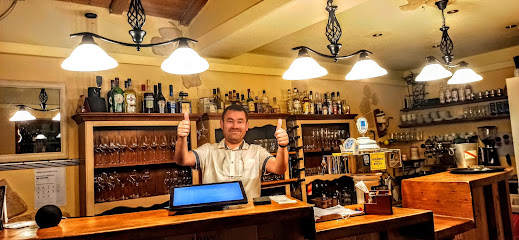
Gasthof Weizenbrauerei Woaze
Savor Bavarian traditions at Gasthof Weizenbrauerei Woaze, where delicious food and home-brewed beers create unforgettable dining experiences in Füssen.
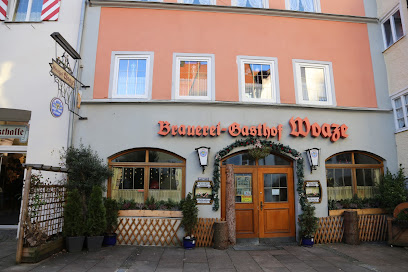
Madame Plüsch
Savor the essence of Bavaria with authentic dishes and a cozy atmosphere at Madame Plüsch in Füssen.
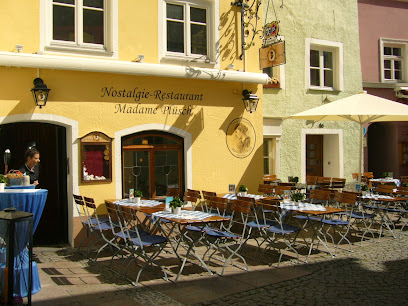
Bayrish Pub
Discover the authentic Irish pub experience in Füssen, where warm hospitality meets lively entertainment and delicious cuisine.
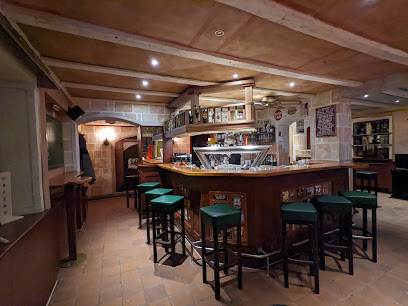
RIWA Bar & Restaurant
Experience Füssen's culinary scene at RIWA Bar & Restaurant, where modern flavors meet traditional German cuisine in a charming setting.
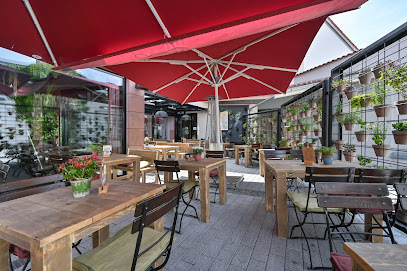
Vitushöhle
Discover Vitushöhle, a charming Irish pub in Füssen, serving delectable burgers and steaks in a cozy atmosphere perfect for unwinding after a day of exploration.
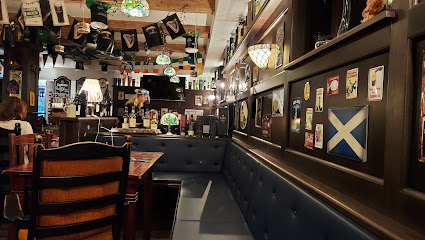
Eisen-Schmidt
Discover Eisen-Schmidt, Füssen's top takeout restaurant, famous for its succulent steaks and delicious local dishes, perfect for your culinary adventure.
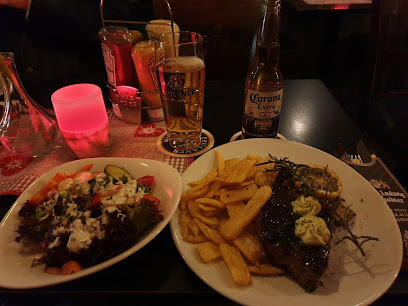
Dejavu - Restaurant Café Bar
Experience the best of Füssen at Dejavu Restaurant Café Bar, where local flavors meet a vibrant atmosphere for an unforgettable culinary journey.
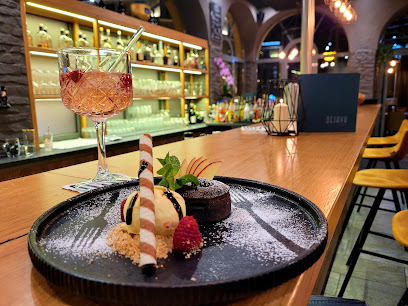
Kö-Füssen: Billard, Dart, Kicker, Bistro, Bar, Wohnzimmer
Discover Kö-Füssen, a lively bar in Füssen where games, drinks, and good company come together in a cozy atmosphere.
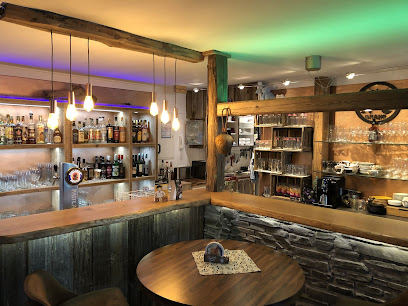
ALEX bar centrale
Discover the vibrant atmosphere of ALEX Bar Centrale in Füssen, a perfect blend of café, bar, and restaurant for every traveler.
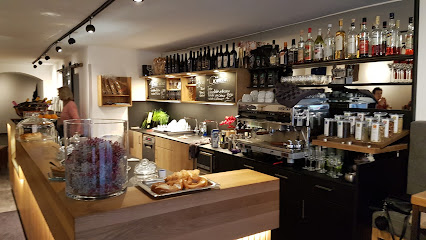
Sir Capulus Café & Bar
Experience a delightful breakfast at Sir Capulus Café & Bar in Füssen, where culinary excellence meets charming ambiance for an unforgettable start to your day.
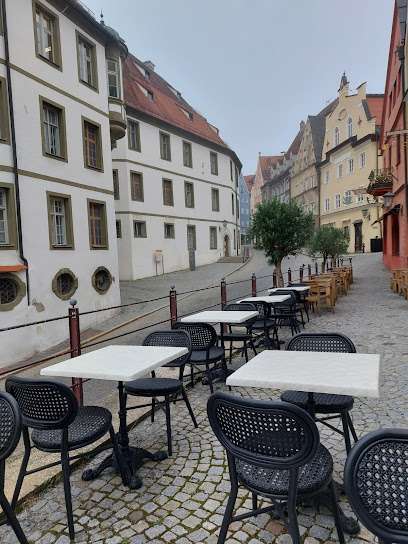
Chili - Steakrestaurant, Burger, Bar, Vinoteca
Discover the vibrant flavors of Chili in Füssen, where gourmet burgers, exquisite steaks, and fine wines come together for an unforgettable dining experience.
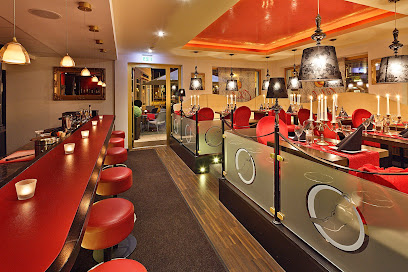
SCHRANNEN BAR
Discover the cozy atmosphere and delightful drinks at Schrannen Bar, Füssen's charming escape for tourists and locals alike.
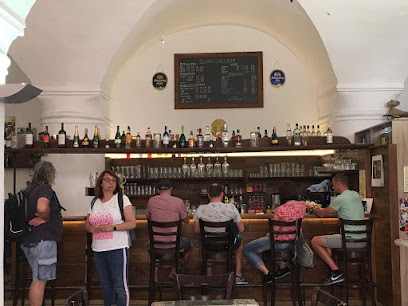
Schwangau Stube
Discover the cozy charm of Schwangau Stube, a beloved pub in Füssen, serving authentic Bavarian cuisine and local brews in a welcoming atmosphere.
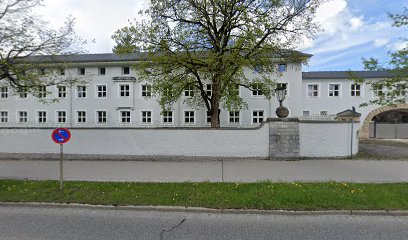
Local Phrases about Fussen
-
- HelloHallo
[ha-lo] - GoodbyeAuf Wiedersehen
[owf vee-der-zay-en] - YesJa
[yah] - NoNein
[nine] - Please/You're welcomeBitte
[bi-teh] - Thank youDanke
[dahn-keh] - Excuse me/SorryEntschuldigung
[ent-shool-dee-gung] - How are you?Wie geht es dir?
[vee gayt es deer] - Fine. And you?Gut. Und dir?
[goot oont deer] - Do you speak English?Sprechen Sie Englisch?
[shpre-khen zee eng-leesh] - I don't understandIch verstehe nicht
[ikh fer-shteh-eh nikht]
- HelloHallo
-
- I'd like to see the menu, pleaseIch würde gerne die Speisekarte sehen, bitte
[ikh vur-deh geh-ren dee shpy-ze-kar-teh zay-en, bi-teh] - I don't eat meatIch esse kein Fleisch
[ikh ess-eh kine flysh] - Cheers!Prost!
[prost] - I would like to pay, pleaseIch möchte bitte zahlen
[ikh merkht-eh bi-teh tsah-len]
- I'd like to see the menu, pleaseIch würde gerne die Speisekarte sehen, bitte
-
- Help!Hilfe!
[hil-feh] - Go away!Geh weg!
[geh vegg] - Call the Police!Rufen Sie die Polizei!
[roo-fen zee dee poh-lee-tsay] - Call a doctor!Rufen Sie einen Arzt!
[roo-fen zee i-nen ahr-tst] - I'm lostIch habe mich verirrt
[ikh hah-beh meesh feh-rirt] - I'm illIch bin krank
[ikh been krahngk]
- Help!Hilfe!
-
- I'd like to buy...Ich möchte kaufen...
[ikh merkht-eh kow-fen] - I'm just lookingIch schaue nur
[ikh sh-ow-eh noor] - How much is it?Wie viel kostet es?
[vee feel kohs-tet es] - That's too expensiveDas ist zu teuer
[dahs ist tsoo toy-er] - Can you lower the price?Können Sie den Preis senken?
[kuh-nen zee den prees zeng-ken]
- I'd like to buy...Ich möchte kaufen...
-
- What time is it?Wie spät ist es?
[vee shpayt ist es] - It's one o'clockEs ist ein Uhr
[es ist iyn oor] - Half past (10)Halb elf
[halb elf] - MorningMorgen
[mohr-gen] - AfternoonNachmittag
[nahk-mit-tahk] - EveningAbend
[ah-bent] - YesterdayGestern
[gehs-tern] - TodayHeute
[hoi-teh] - TomorrowMorgen
[mohr-gen] - 1Eins
[ines] - 2Zwei
[tsvai] - 3Drei
[dry] - 4Vier
[feer] - 5Fünf
[fuhnf] - 6Sechs
[zeks] - 7Sieben
[zee-ben] - 8Acht
[ahkt] - 9Neun
[noyn] - 10Zehn
[tsen]
- What time is it?Wie spät ist es?
-
- Where's a/the...?Wo ist ein/der...?
[vo ist iyn/dehr] - What's the address?Was ist die Adresse?
[vas ist dee ah-dreh-seh] - Can you show me (on the map)?Können Sie mir zeigen (auf der Karte)?
[kuh-nen zee meer tsay-gen (owf dehr kar-teh)] - When's the next (bus)?Wann kommt der nächste (Bus)?
[vahn kohmt dehr nekh-steh (boos)] - A ticket (to ....)Eine Fahrkarte (nach ....)
[i-ne fahr-kar-teh (nahkh ....)]
- Where's a/the...?Wo ist ein/der...?
History of Fussen
-
Füssen's history dates back to Roman times when the Via Claudia Augusta, a Roman road built in the 1st century AD, passed through the area. This road connected the Po River in Italy to the Danube River in Germany, making Füssen an important Roman settlement and trade route.
-
During the Middle Ages, Füssen flourished under the rule of the Prince-Bishops of Augsburg. The town's strategic location along the Lech River made it a significant center for trade and craftsmanship. The High Castle (Hohes Schloss), built in the 13th century, served as the summer residence for the bishops and is one of the best-preserved late Gothic castle complexes in Bavaria.
-
In the 9th century, the Benedictine Monastery of St. Mang was established, which played a crucial role in the cultural and religious life of Füssen. The monastery became a center for arts, music, and education, significantly influencing the region's development. Today, the former monastery houses the Museum of Füssen, showcasing the town's rich history and art.
-
Füssen is renowned for its lute-making tradition, which dates back to the 16th century. The town became a significant center for the production of lutes, and Füssen's luthiers were highly sought after throughout Europe. This legacy is celebrated in the Museum of Füssen, where visitors can admire historical instruments and learn about the craft's history.
-
One of the most iconic landmarks near Füssen is Neuschwanstein Castle, commissioned by King Ludwig II of Bavaria in the 19th century. Although not located within the town itself, its proximity has significantly influenced Füssen's cultural landscape. The fairy-tale castle, inspired by romantic and medieval ideals, attracts millions of visitors annually, contributing to Füssen's status as a major tourist destination.
-
Today, Füssen is a charming blend of historical heritage and modern amenities. The town boasts picturesque streets, well-preserved architecture, and vibrant cultural events. Its location in the foothills of the Alps makes it a popular destination for outdoor activities such as hiking, skiing, and exploring the scenic beauty of Bavaria.
Fussen Essentials
-
Füssen is located in the Bavarian region of Germany, near the Austrian border. The nearest major airport is Munich International Airport, approximately 160 kilometers away. From Munich, you can take a direct train to Füssen, which takes about 2 hours. Alternatively, you can rent a car and drive via the A7 motorway, which provides a scenic route through the Bavarian countryside.
-
Füssen is a small town, and many of its attractions are within walking distance. The town has a reliable public transport system, including buses that connect to nearby villages and tourist attractions such as Neuschwanstein Castle. Taxis are also available, and car rentals can be convenient for exploring the surrounding area at your own pace. Bicycles are available for rent and are a popular way to get around, especially during the warmer months.
-
The official currency in Germany is the Euro (EUR). Credit and debit cards are widely accepted in most hotels, restaurants, and shops. However, it is advisable to carry some cash, especially for small purchases or in rural areas. ATMs are available throughout Füssen, and you can easily withdraw euros using your bank card.
-
Füssen is generally a safe destination for tourists. As with any travel destination, it is advisable to take standard precautions. Avoid leaving your belongings unattended and be cautious in crowded areas. There are no specific high-crime areas targeting tourists in Füssen, but it is always best to stay vigilant and aware of your surroundings.
-
In case of emergency, dial 112 for immediate assistance. This number connects you to emergency services including police, fire department, and medical assistance. The local hospital in Füssen provides medical care, and there are several pharmacies in town for minor health issues. It is recommended to have travel insurance that covers medical emergencies.
-
Fashion: Do dress comfortably and appropriately for the weather, especially if you plan to hike or visit castles. Avoid overly casual attire in more formal settings. Religion: Do respect religious customs if visiting churches, and consider dressing modestly. Public Transport: Do validate your ticket before boarding trains or buses. Don't eat or drink on public transport. Greetings: Do greet people with a friendly 'Guten Tag' or 'Hallo.' A firm handshake is also customary. Eating & Drinking: Do try local Bavarian dishes. Don’t leave a tip on the table; instead, hand it directly to your server.
-
To experience Füssen like a local, visit the weekly market where you can buy fresh produce and local specialties. Engage with locals, who are often happy to share tips about the best hiking trails and lesser-known attractions. Don’t miss the opportunity to attend a local festival or event, such as the Füssen Music Festival, which offers a glimpse into the town’s vibrant cultural life.
Nearby Cities to Fussen
-
Things To Do in Innsbruck
-
Things To Do in Bregenz
-
Things To Do in Dornbirn
-
Things To Do in Munich
-
Things To Do in Schellenberg
-
Things To Do in Ruggell
-
Things To Do in Mauren
-
Things To Do in Eschen
-
Things To Do in Gamprin
-
Things To Do in Schaan
-
Things To Do in Triesenberg
-
Things To Do in Vaduz
-
Things To Do in Balzers
-
Things To Do in Davos
-
Things To Do in Arosa











